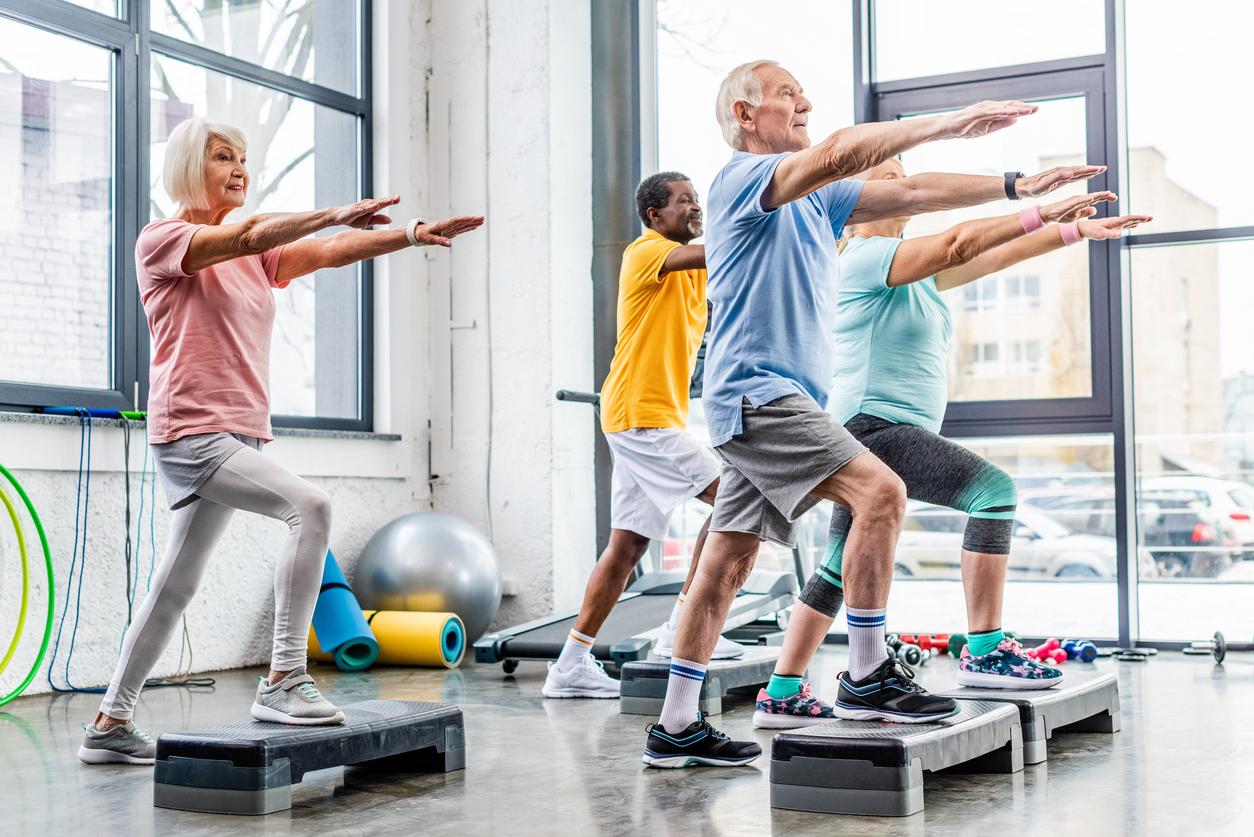Spending time in moderate-to-vigorous physical activity every day throughout life may improve cognitive performance in old age, according to a new brain study.

- Global recommendations call for at least 150 minutes of moderate-intensity physical activity, or 75 minutes of vigorous-intensity physical activity per week.
- 95% of French people do not have sufficient sporting activity to keep them in good health, according to ANSES.
- According to a 2022 English study, just 30 minutes of “moderate-to-vigorous intensity physical activity” a day is enough to compensate for ten hours of time spent sitting.
According to a new study published online in the Journal of Epidemiology & Community Health, Sufficient amount of time spent in moderate and vigorous physical activity each day is linked to cognitive performance above 40.
Sedentary behaviors associated with poorer cognitive performance
Among the improved abilities, the researchers identified in particular working memory and mental processes such as planning and organization. On the contrary, too little daily activity and sedentary behavior is associated with poorer cognitive performance. A sedentary lifestyle is defined by a state of wakefulness characterized by low energy expenditure in a sitting or lying position, according to the Ministry of Health.
To reach these results, the scientists relied on data from a British cohort study dating back to 1970. The health of the participants was followed throughout childhood and adulthood. From 2016 to 2018, 8,581 volunteers reached the ages of 46 and 47, at which point they were asked to complete detailed health, background and lifestyle questionnaires, and to wear an activity tracker until ‘to 7 days and for at least 10 consecutive hours per day. The final analysis included 4,481 participants, just over half of whom were women.
Physical activity has a vital role in enhancing cognition
They took various cognitive tests to assess their verbal memory (immediate and delayed word recall tasks) and their executive function (verbal fluency and processing speed/accuracy). Scores for each test were calculated to produce an overall score assessing memory and executive function. Time spent on physical and moderate activities was positively associated with cognitive performance after adjusting for education level and physical activity at work, compared to sedentary behaviors.
Since this is an observational study, the researchers cannot really claim to demonstrate a causal relationship between more physical activity and better cognitive performance once older. Especially since the study has some limitations, such as the difficulties in measuring activities and the low diversity of participants despite a large sample size. Nevertheless, they conclude: “This robust method supports the essential role of intense and moderate physical activity in enhancing cognition, and efforts should be made to better integrate it into our daily lives.”

















